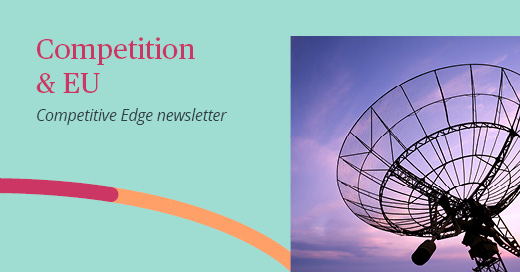Belgian Competition Authority adopts new Guidelines
On 22 May 2020 the Belgian Competition Authority (BCA) published three new guidelines: (i) new guidelines regarding the informal opinions of the BCA's President; (ii) new guidelines regarding the calculation of fines; and (iii) new leniency guidelines. Below we set out the most important differences between the old guidelines and the new ones.
The previous sets of guidelines dated from 2014 and required an update after the reform of the Belgian Code of Economic Law in 2019 (see here).
The new guidelines regarding the informal opinions of the BCA's president do not bring any material changes. It is merely an update in order to bring the terminology in line with the 2019 Act.
The new fining guidelines are essentially an update to bring the old principles in line with the 2019 Act. However, two points merit highlighting:
- The law of 25 April 2019 raised the maximum fine cap from 10 % of the Belgian turnover to 10 % of the worldwide turnover, in line with European law and the national competition laws of many other EU Member States. The new guidelines however confirm that, in line with previous practice, the basic amount of the fine must be defined in relation to the national turnover pertaining to the infringement.
- Like the old version, the BCA's guidelines interpret the aggravating factor of “same or similar infringement” as “a same or similar case in a Member State of the Union which is the subject of a decision by the European Commission or a national competition authority of a country neighbouring Belgium or of the United Kingdom”. Not only does this confirm the BCA's strict adherence to the principle of recidivism (i.e. the need for a prior decision by another authority), it is also interesting that the United Kingdom remains on the list, despite Brexit.
The new guidelines apply to new cases and on certain pending cases which are still in the investigative phase of the procedure.
The changes in the leniency guidelines are more substantial. In addition to a number of (important) procedural matters which increase the procedure's efficiency, the following can be highlighted:
- Leniency applications may no longer be brought in English, but only in French and/or Dutch depending on the location of the undertaking’s legal seat in Belgium. Moreover, the Auditor-General can oblige the parties to translate evidence to Dutch or French on pain of removal from the file. Once removed from the file, the document will no longer be regarded as information supporting the leniency application.
- Regarding natural persons the guidelines now explicitly add that individuals that sufficiently cooperated with the leniency application of the undertaking or association of undertakings will enjoy immunity of prosecution.
- In line with the old guidelines, an individual can in principle only be fined together with an undertaking. The new guidelines however add that, in case the undertaking or association of undertakings that committed the infringement no longer exists and has no legal successor, the investigation can exceptionally be conducted only with regard to the natural persons involved.
The new leniency guidelines will apply to leniency applications submitted after 22 May 2020 on the condition that no other leniency application was submitted in the case already.
For more information contact Hein Hobbelen and Pauline Van Sande



